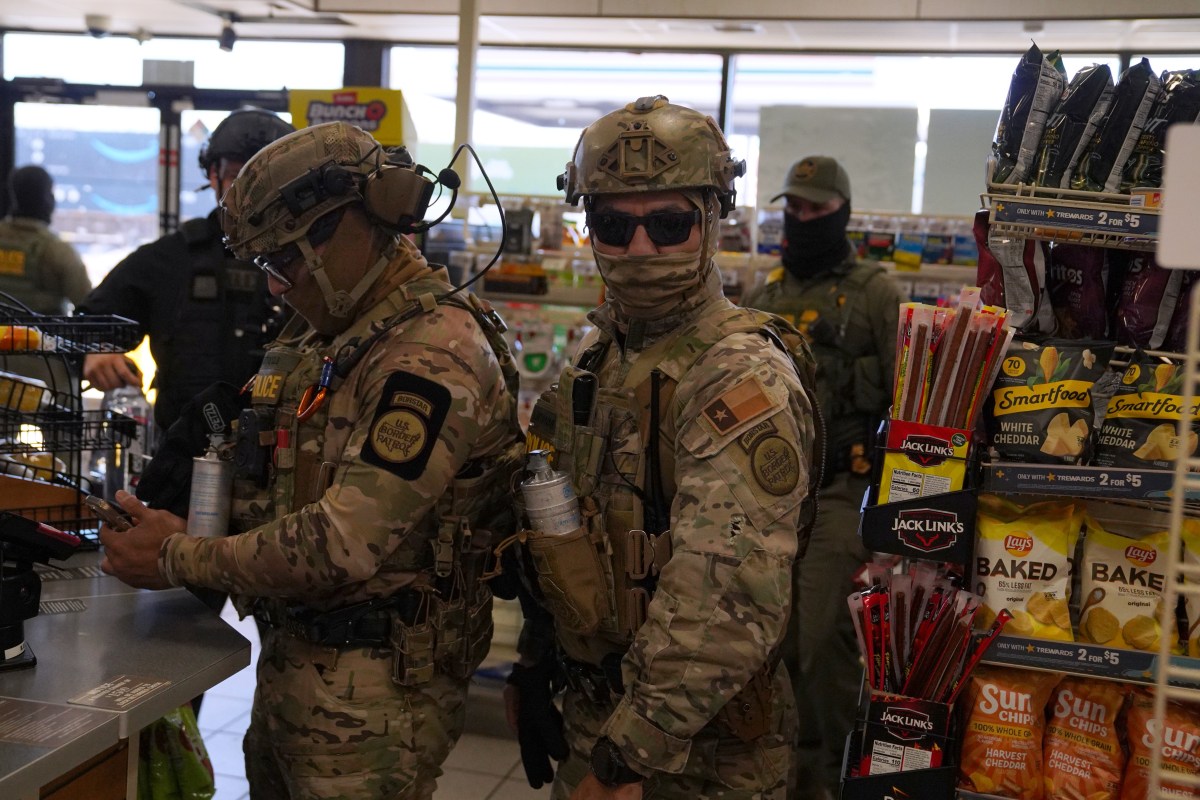Charlotte’s small business community is reeling as federal immigration agents launched a large-scale operation, leaving empty streets and shuttered storefronts.
The highly publicized crackdown, known as Operation Charlotte’s Web, has sparked backlash from small business owners and city officials, who say the raids have disrupted local commerce and created fear in immigrant communities.
The Department of Homeland Security (DHS) told Newsweek on November 19 that as of Tuesday evening, Border Patrol had arrested more than 250 individuals over the first four days of the operation.
City officials and business owners say the presence of U.S. Border Patrol has triggered a drop in foot traffic among customers and staff, leaving neighborhoods quiet and threatening the economic heartbeat of the city.
“It’s going to negatively impact our economy. Charlotte is an economically vibrant city. We have a robust small business community,” Charlotte Mayor Pro Tem Danté Anderson told Newsweek.
Closed ‘Until Further Notice’
On the first day of the raids, small businesses posted “closed until further notice” due to concerns over the safety of workers and customers, Anderson said. “Border Patrol is going into these businesses and asking anyone and everyone to identify themselves,” she said.
A longtime neighborhood bakery on the east side of Charlotte, Manolo’s, has shut down temporarily for the first time in 28 years. Manolo Betancur, owner of the bakery, told Newsweek that he closed the doors because he didn’t want to put “customers at risk.”
“On Saturday, I was walking to the bakery. Many people were walking to the bakery, and within 10 minutes, I saw them jumping out of cars in green uniforms,” Manolo told Newsweek in a statement over email. “Anyone they caught on the sidewalk was thrown to the ground, handcuffed, put in a car, and disappeared. It was a terrifying moment, and some of those people were my customers.”
“I sell cakes, I sell happiness, I sell love. And the last thing I want is for a child to lose their father or mother because they came to the bakery to get a pastry,” he added.
Mass Deportations: Impact on Small Businesses
The raids are part of wider efforts under the administration to carry out mass deportations after President Donald Trump pledged to remove millions of migrants without legal status. The president’s flagship immigration policy has raised major concerns among business leaders.
Charlotte laundromat owner David Rebolloso said in a statement that the recent operations have dramatically reduced customer traffic at his business.
“Foot traffic has dropped sharply—with Sunday revenue down about 50%, our most important day of the week. Streets that were once busy with working families and children are now nearly empty, especially in Latino-concentrated business areas,” Rebolloso said in a press release.
Former Charlotte Mayor Jennifer Roberts said in a news release that the effects of the federal presence have been felt across several industries. According to Roberts, some immigrant workers—including U.S. citizens and legal residents—have stayed home out of concern they may be misidentified.
Financial Losses
“We have heard reports of five different tire companies on South Boulevard being closed on Saturday due to workers not showing up. Construction companies have job sites that are idle. Restaurants are running shorter hours or closing for the week,” Roberts said in a statement.
The Secure Growth Initiative, a national coalition representing more than 100,000 small businesses, is calling for the federal government to take responsibility for financial losses tied to these enforcement actions.
“All local small businesses are suffering. The federal government must be held accountable for these financial losses either with Congressional funding or legal action,” Frank Knapp Jr., managing director of the Secure Growth Initiative, said in a statement.
Community Contribution
North Carolina has a substantial immigrant population. About 9.3 percent of the state’s residents are foreign-born, and 5.3 percent of U.S.-born residents live with at least one immigrant parent, according to the American Immigration Council. Immigrants make up 12 percent of the state’s labor force and support the economy in a range of ways, accounting for 14.9 percent of entrepreneurs, 19 percent of STEM workers, and 27 percent of construction workers.
Undocumented immigrants also contribute significantly to state and local tax revenue. A report from the North Carolina Budget & Tax Center estimated that undocumented immigrants paid approximately $692 million in state and local taxes in 2022.
The report also noted that for every 1 million undocumented immigrants residing in the U.S., public services receive $8.9 billion in additional tax revenue, while deporting the same number would reduce tax revenue by the same amount.
A policy brief from the Carolina Forward Research Team found that undocumented immigrants in North Carolina pay between $258 million and $360 million annually in combined sales, property, and state income taxes.
Critics say U.S. Border Patrol has used heavy-handed tactics during enforcement operations in California and Illinois, engaging in racial profiling, and, in some instances, agents deployed tear gas.
“They’re not sharing any information as to why they’re here, where they’re targeting, or if they have a list of individuals. It literally appears as if they’re just pulling people off the street and asking them to identify themselves,” Anderson said.









